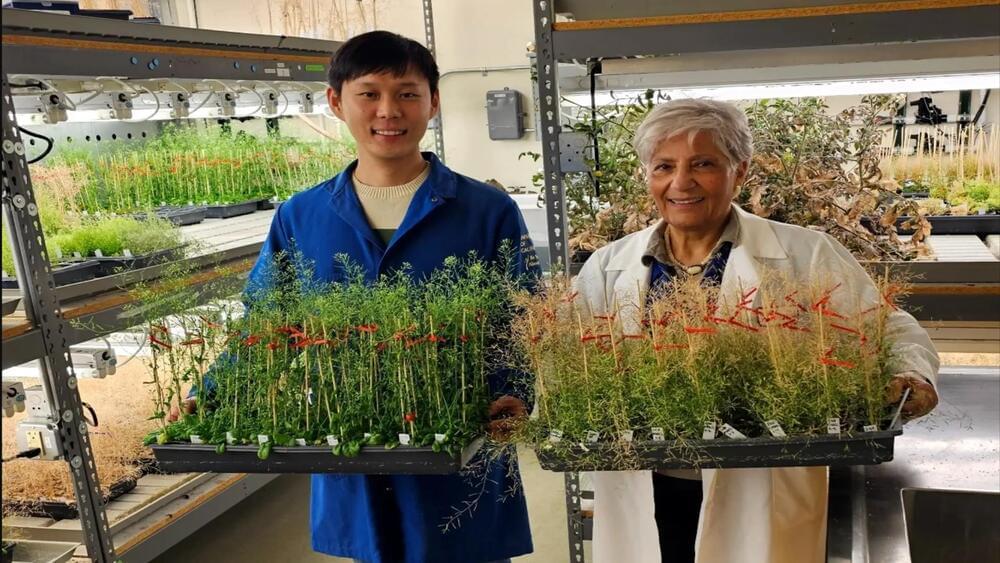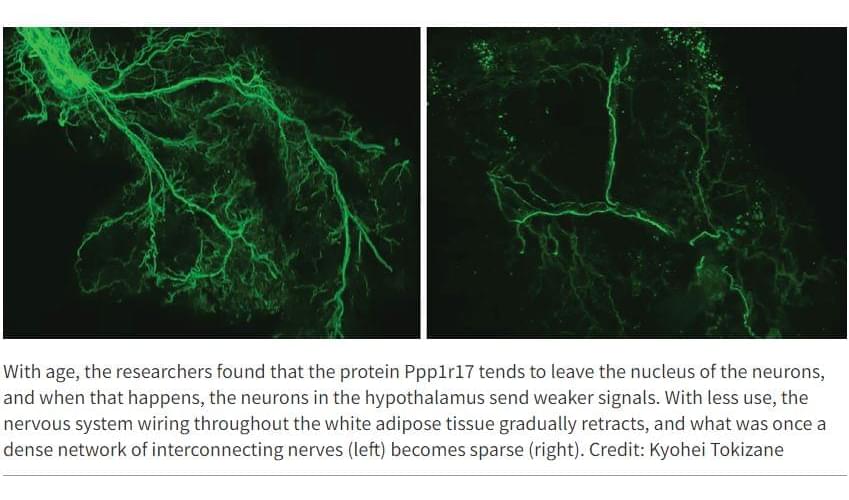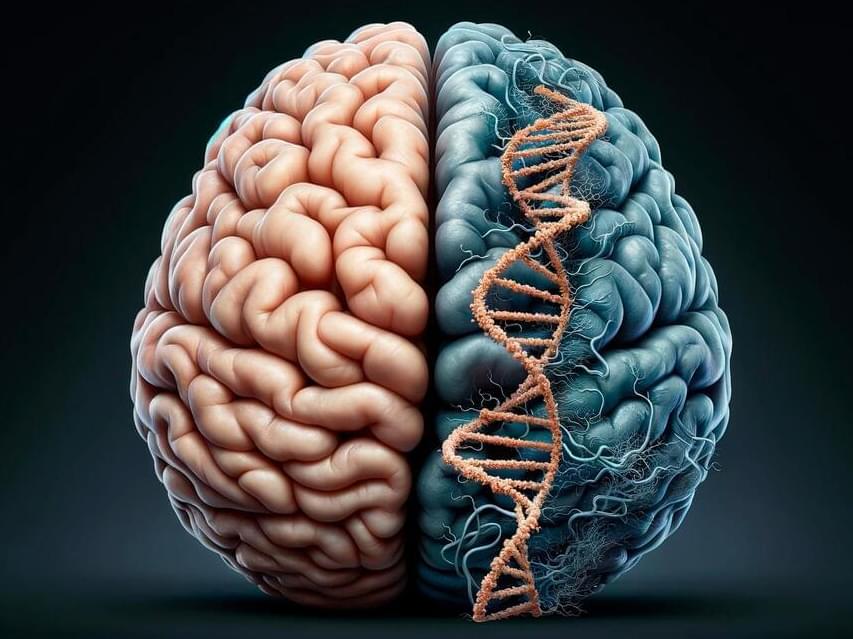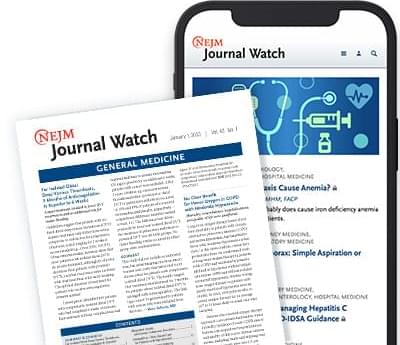Research team stumble upon new discovery which potentially holds the key to aging in plants. Click here to find out what this means for the future.


Join us on Patreon! https://www.patreon.com/MichaelLustgartenPhDDiscount Links: Telomere, Epigenetic Testing: https://trudiagnostic.com/?irclickid=U-s3Ii2r7x…


Data is written to the memory cell by changing the magnetization in the free layer (which acts as the ‘storage’ layer in the MRAM bit cell) by passing a current through the heavy metal layer, which generates a spin current and injects it into the adjacent magnetic layer, switching its orientation and thus changing its state. Reading data involves assessing the magnetoresistance of the MTJ by directing a current through the junction. The main difference between STT-and SOT-MRAM resides in the current injection geometry used for the write process, and apparently, the SOT method ensures lower power consumption and device longevity.
While SOT-MRAM offers lower standby power than SRAM, it needs high currents for write operations, so its dynamic power consumption is still quite high. Furthermore, SOT-SRAM cells are still larger than SRAM cells, and they are harder to make. As a result, while the SOT-SRAM technology looks promising, it is unlikely that it will replace SRAM any time soon. Yet, for in-memory computing applications, SOT-MRAM could make a lot of sense, if not now, but when TSMC learns how to make SOT-MRAM cost-efficiently.

In recent years, research has begun to reveal that the lines of communication between the body’s organs are key regulators of aging. When these lines are open, the body’s organs and systems work well together. But with age, communication lines deteriorate, and organs don’t get the molecular and electrical messages they need to function properly.
A new study from Washington University School of Medicine in St. Louis identifies, in mice, a critical communication pathway connecting the brain and the body’s fat tissue in a feedback loop that appears central to energy production throughout the body. The research suggests that the gradual deterioration of this feedback loop contributes to the increasing health problems that are typical of natural aging.
The study—published in the journal Cell Metabolism—has implications for developing future interventions that could maintain the feedback loop longer and slow the effects of advancing age.

A new Northwestern Medicine study shows that RNA interference may play a key role in Alzheimer’s. For the first time, scientists have identified short strands of toxic RNAs that contribute to brain cell death and DNA damage in Alzheimer’s and aged brains. Short strands of protective RNAs are decreased during aging, the scientists report, which may allow Alzheimer’s to develop.
The study also found that older individuals with a superior memory capacity (known as SuperAgers) have higher amounts of protective short RNA strands in their brain cells. SuperAgers are individuals aged 80 and older with a memory capacity of individuals 20 to 30 years younger.
“Nobody has ever connected the activities of RNAs to Alzheimer’s,” said corresponding study author Marcus Peter, the Tom D. Spies Professor of Cancer Metabolism at Northwestern University Feinberg School of Medicine. “We found that in aging brain cells, the balance between toxic and protective sRNAs shifts toward toxic ones.”
A.I. for longevity and long lived flies.
Kennedy Schaal presents “Using Advanced A.I. and Blockchain Technology to Targey Aging” at the Longevity+DeSci Summit NYC (EARD 2023) hosted by Lifespan.io. Summary ▀▀▀▀▀▀▀▀▀▀▀▀▀▀▀▀▀▀▀▀▀▀▀▀▀▀ Kennedy Schaal is the founder and CEO of Rejuve Biotech, an AI-driven therapeutics discovery company solving the problems for longevity and age-associated diseases. By using advanced Artificial Intelligence to combine data from the Methuselah Flies with data from people, Rejuve. Bio can shorten the drug discovery pipeline and rapidly develop novel therapeutics to help people live longer. They have two high-impact and novel data sources, as well as unique artificial intelligence technology. First and foremost, they are the sole owner of data from the Methuselah Flies (fruit flies) that have been bred for longevity. Second, because flies have a shorter life cycle, they can be tested for longevity much faster than other animal models. Rejuve Biotech has the unique ability to test multiple interventions and treatment combinations over the course of a fruit fly’s life and in various aspects of its life (e.g., mating, disease resistance). In addition, they also have quick access to Crowdsourced Human Data collected by a partner company, Rejuve Network. Kennedy Schaal is an accomplished biotechnology executive with a strong leadership track record in applied genomic research and Artificial Intelligence at the frontier of longevity science. She is also a multi-published author on the science of longevity and applied genomics trials. Kennedy is also a world-leading expert on genomic selection and breeding for innovative Drosophila Methuselah Flies, which together with applied Artificial Intelligence solve many of today’s pain points in longevity research, with the potential for massive impact on the health and lifespan of people across the planet. Experienced Laboratory Director and Chief Biologist with a demonstrated history of working in the biotechnology industry. Strong research professional skilled in evolutionary biology, genetics, and the study of aging-related diseases.
Dr. Joan Mannick presents the best validated therapeutic to extend lifespan in this video. Dr. Joan Mannick is the Chief Executive Officer and Co-Founder of T…


according to a retrospective cohort study.
Poor vision is associated with risks for falls and fractures, but details about risks associated with specific eye diseases are less clear. In this retrospective U.K. cohort study, researchers identified nearly 600,000 patients (mean age, 74) with cataracts, glaucoma, or age-related macular degeneration (AMD) and compared them with age-and sex-matched control patients who did not have eye diseases. Falls and fractures were tracked for a median of about 4 years. Analyses were adjusted for a wide range of chronic diseases and medications that increase risk for falls.
Compared with controls, patients with eye diseases had significantly higher hazard ratios for falls and fractures: HRs ranged from 1.18 to 1.38 for the three eye-disease groups. The incidence rates for falls per 100,000 person-years were about 1,800 to 2,500 for the three eye-disease groups, compared with 620 to 850 for control groups. For fractures, the corresponding incidence rates for the three eye-disease groups were 970 to 1,290, compared with 380 to 500 for control groups.
The absolute and relative risks for falls and fractures were similar for all 3 eye-disease groups. An unexplained fall, particularly an injurious one, should prompt primary care clinicians to explore visual impairment as a potential cause or contributing factor.